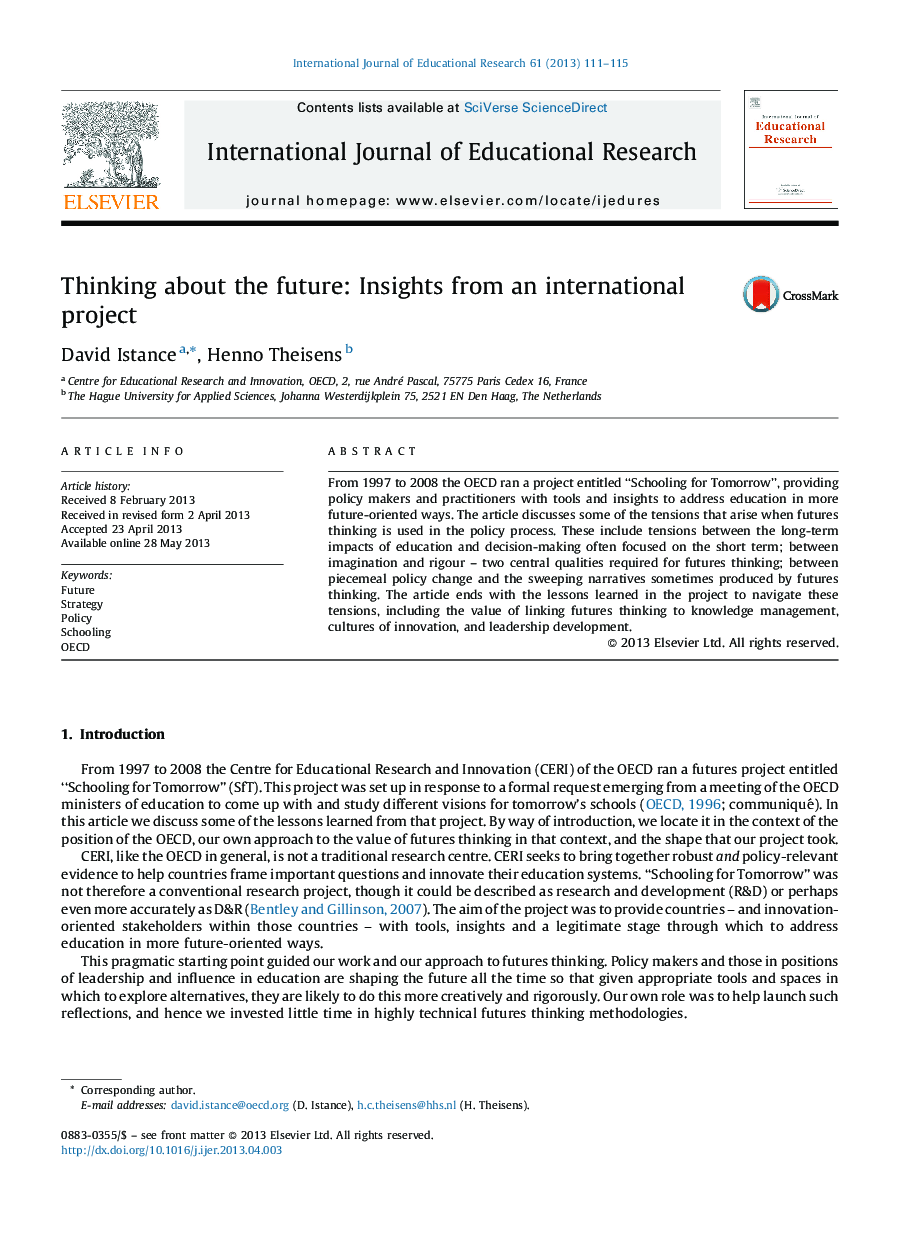| Article ID | Journal | Published Year | Pages | File Type |
|---|---|---|---|---|
| 356974 | International Journal of Educational Research | 2013 | 5 Pages |
•Futures thinking in education is difficult because of inherent tensions.•Tensions include different time perspectives and dealing with unknowable futures.•Lessons learned from OECD work about futures-thinking-in-action initiatives.•Importance of agency, constituency, organisational networks, and structures.•Futures work as part of innovation, knowledge management, and leadership development.
From 1997 to 2008 the OECD ran a project entitled “Schooling for Tomorrow”, providing policy makers and practitioners with tools and insights to address education in more future-oriented ways. The article discusses some of the tensions that arise when futures thinking is used in the policy process. These include tensions between the long-term impacts of education and decision-making often focused on the short term; between imagination and rigour – two central qualities required for futures thinking; between piecemeal policy change and the sweeping narratives sometimes produced by futures thinking. The article ends with the lessons learned in the project to navigate these tensions, including the value of linking futures thinking to knowledge management, cultures of innovation, and leadership development.
